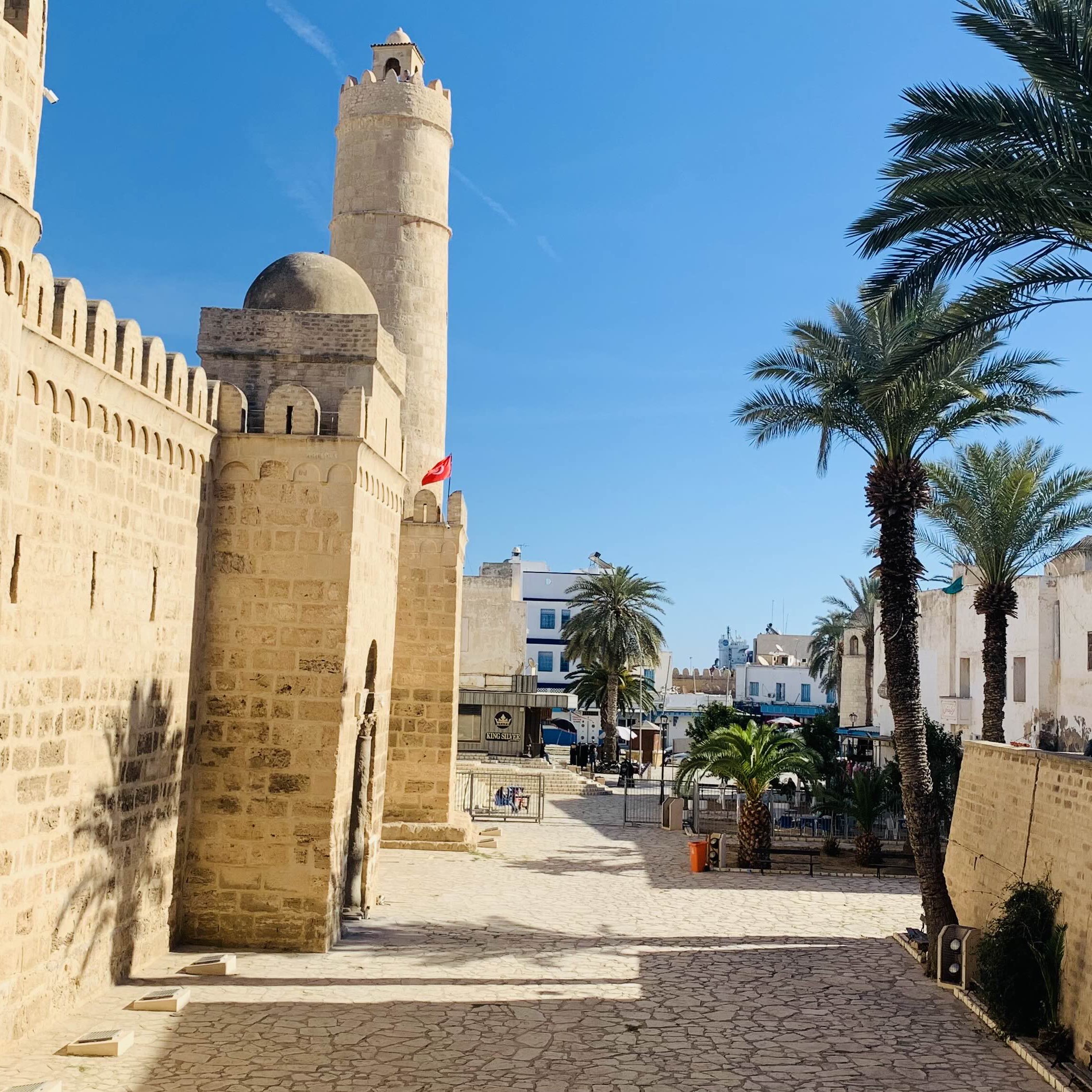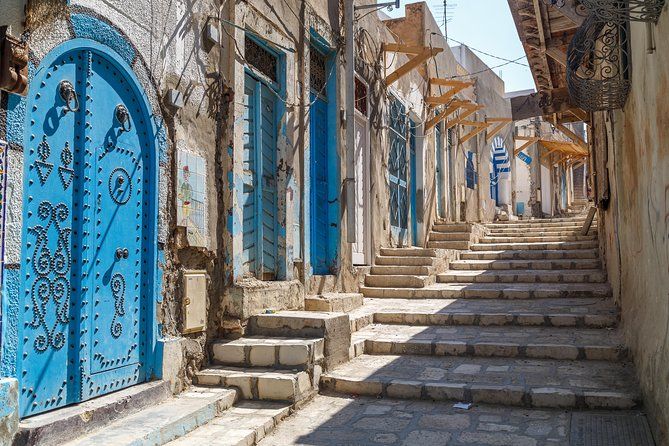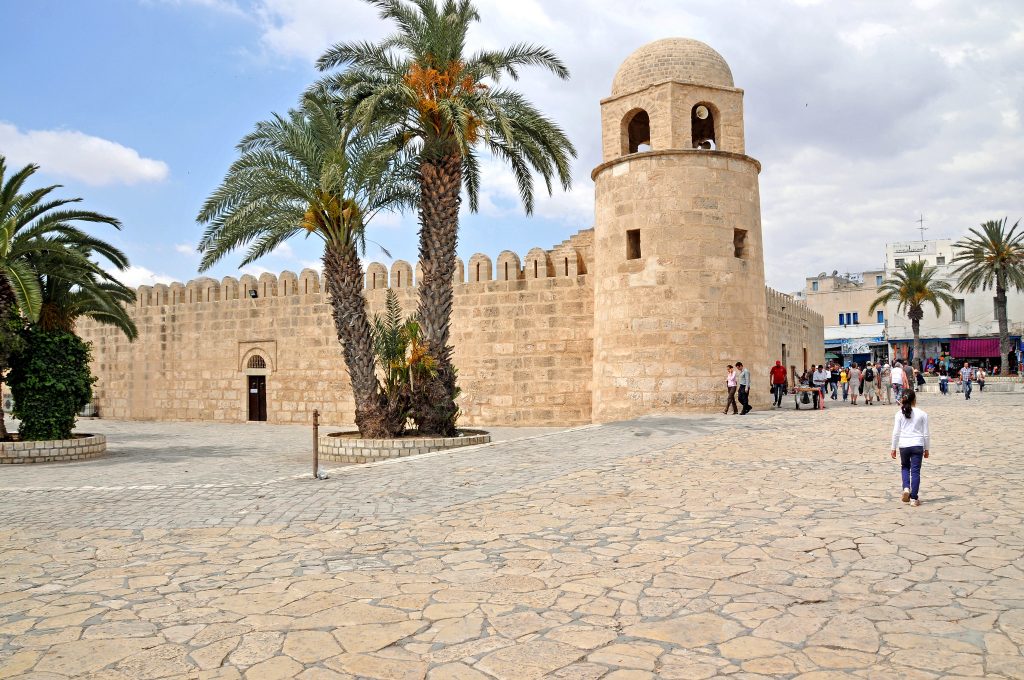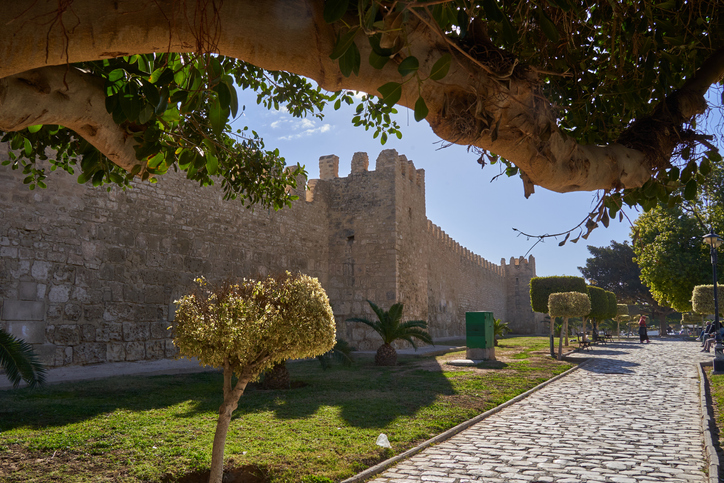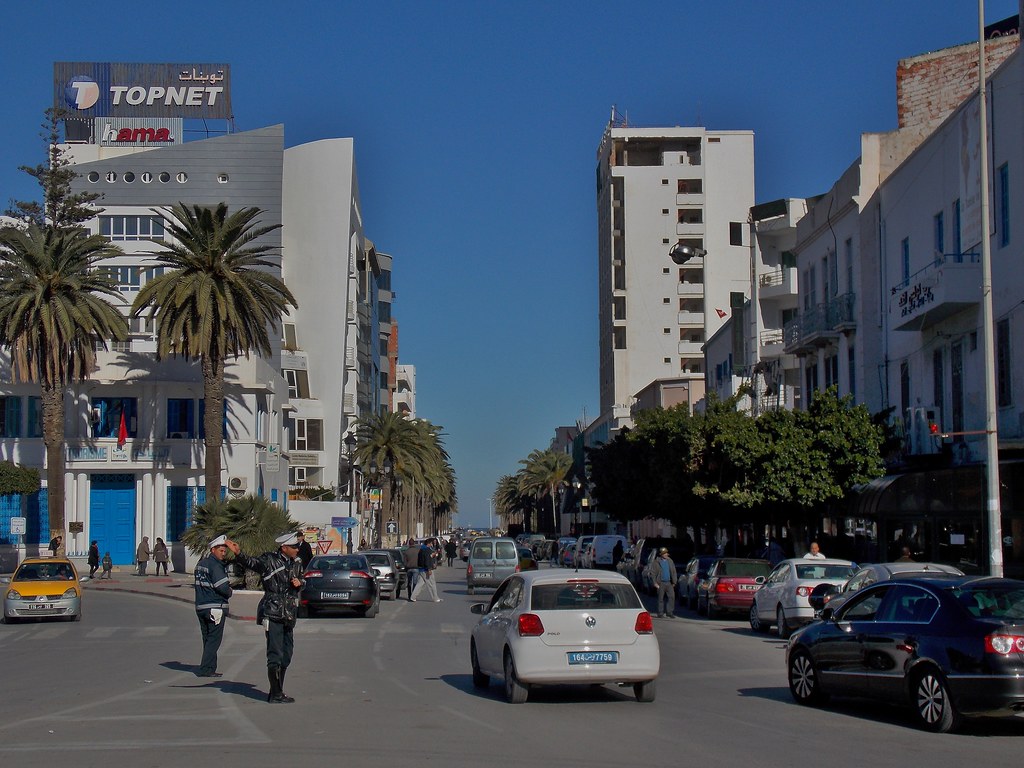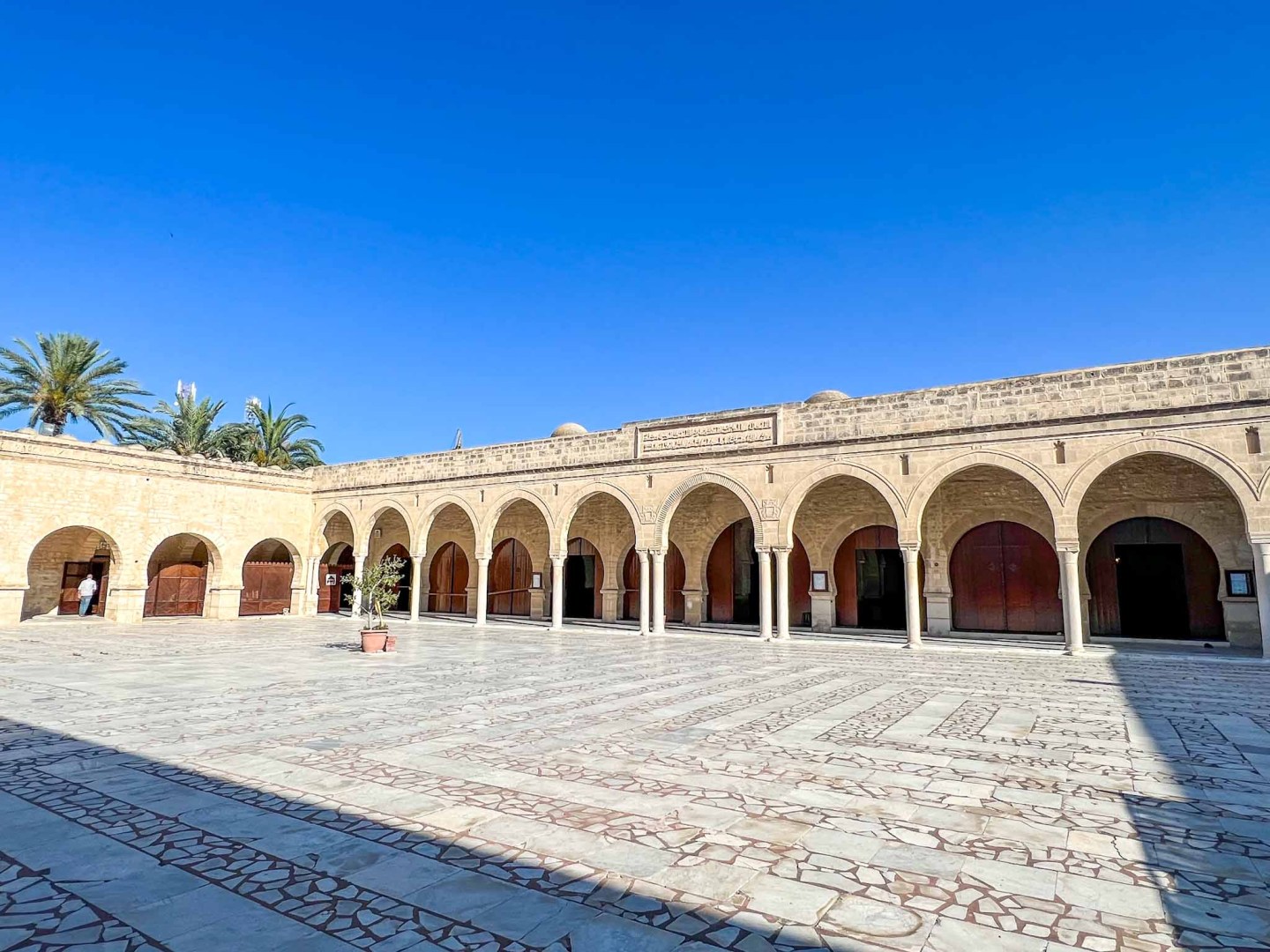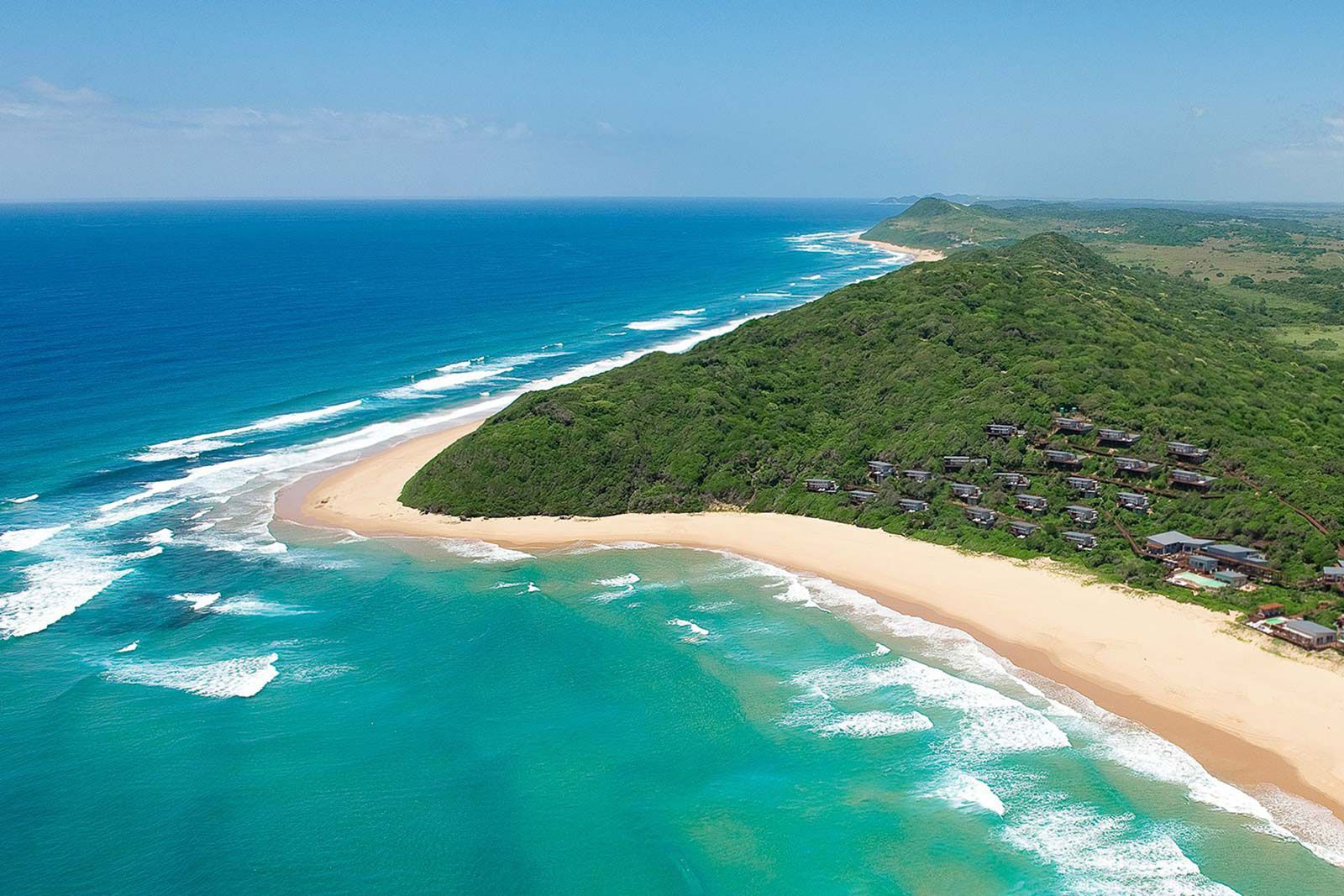Views Of Sousse
About
location:
Gulf of hammamet, Tunisia
Sousse is a city located on the eastern coast of Tunisia, along the Mediterranean Sea. It is the third-largest city in the country and serves as an important economic and cultural center. Sousse is known for its beautiful beaches, ancient Roman ruins, bustling markets, and vibrant nightlife.
One of the main attractions in Sousse is the Medina, which is a UNESCO World Heritage site. The Medina of Sousse is a maze-like old town with narrow streets, traditional architecture, and numerous shops selling handicrafts, jewelry, textiles, and spices. The Great Mosque of Sousse, with its impressive minaret, is also located within the Medina.
Sousse is also home to several historical landmarks, including the Ribat, a fortified Islamic monastery dating back to the 9th century. This ancient structure offers breathtaking views of the city and the sea. The Medina walls, which surround the old town, are well-preserved and provide another glimpse into Sousse's rich history.
For those interested in Roman history, the Archaeological Museum of Sousse is a must-visit. It houses an extensive collection of Roman mosaics, sculptures, and artifacts found in the region. The museum provides insights into Tunisia's ancient past and showcases the cultural heritage of the area.
Sousse's pristine beaches are a major draw for visitors. The city offers several well-maintained beach resorts with facilities for watersports, sunbathing, and relaxation. The turquoise waters of the Mediterranean Sea provide a refreshing escape from the city's hustle and bustle.
In addition to its historical and natural attractions, Sousse has a vibrant nightlife scene. The city is known for its lively bars, clubs, and restaurants offering a variety of cuisines, from traditional Tunisian dishes to international fare. The lively Port El Kantaoui Marina is a popular spot for dining, shopping, and entertainment.
Sousse also hosts various annual events and festivals that showcase Tunisian culture and traditions. One of the notable events is the Sousse International Festival, featuring music, dance, theater performances, and art exhibitions.
Overall, Sousse is a city that offers a blend of history, culture, natural beauty, and modern amenities. Whether you are interested in exploring ancient ruins, relaxing on the beach, or immersing yourself in Tunisian culture, Sousse has something to offer visitors of all interests.
Things to know before travelling to Sousse
This article is a tip of the iceberg but will equip you with the "Absolute Need to Knows" for Sousse.
How to get there?
The nearest international airport is the Monastir Habib Bourguiba International Airport (MIR), located approximately 20 kilometers from Sousse. Several airlines operate direct flights to Monastir from various European cities. Upon arrival at the airport, you can hire a taxi or use the local bus service to reach Sousse, which takes around 30-40 minutes.
If you are already within Tunisia or nearby countries, you can consider traveling to Sousse by train. Tunisian Railways offers regular train services connecting major cities, including Tunis, Sousse, and Monastir. The train journey from Tunis to Sousse takes approximately 2 hours, while from Monastir, it takes around 20 minutes.
You can also reach Sousse by bus, which is a convenient and affordable option. Various bus companies operate regular services to Sousse from different parts of Tunisia, including Tunis, Monastir, and Hammamet.The journey duration depends on the distance traveled, but it can range from 1.5 to 3 hours.
If you prefer driving, you can rent a car from major cities or airports in Tunisia and travel to Sousse. The main road connecting Tunis to Sousse is the A1 highway, which is well-maintained and offers a relatively smooth journey. It takes around 1.5 to 2 hours to drive from Tunis to Sousse, depending on traffic conditions and your driving speed. It's always advisable to have maps or GPS navigation to ensure a smooth journey.
About the weather
Sousse is a city located on the eastern coast of Tunisia, along the Mediterranean Sea. It enjoys a Mediterranean climate, which generally means hot and dry summers, and mild, wet winters.
During the summer months, from June to September, Sousse experiences hot temperatures, with daily average highs ranging from 30 to 35 degrees Celsius (86 to 95 degrees Fahrenheit).
The hottest months are July and August, with temperatures occasionally reaching above 40 degrees Celsius (104 degrees Fahrenheit). The nights are relatively cooler, with temperatures ranging from 20 to 25 degrees Celsius (68 to 77 degrees Fahrenheit).
Winters in Sousse, from December to February, are mild and relatively wet. Average temperatures during this period range from 15 to 20 degrees Celsius (59 to 68 degrees Fahrenheit) during the day, with nighttime temperatures dropping to around 10 degrees Celsius (50 degrees Fahrenheit). While it is generally mild, there can be occasional rainfall during the winter months.
Spring (March to May) and autumn (October and November) in Sousse are characterized by pleasant temperatures, ranging from 20 to 25 degrees Celsius (68 to 77 degrees Fahrenheit).
Medical matters that affect your visit.
When visiting Sousse, Tunisia, there are several medical matters that can affect your trip. It's important to be aware of these issues and take appropriate precautions for a safe and healthy visit. Here are some medical matters to consider:
Vaccinations
Ensure that you are up to date on routine vaccinations such as measles, mumps, rubella, diphtheria, tetanus, and pertussis. Additionally, it is recommended to get vaccinated against hepatitis A and B, and typhoid.
Mediterranean Diseases
Sousse is situated on the coastline of the Mediterranean Sea, and there are certain diseases associated with this region. For instance, be vigilant about mosquito bites and take preventive measures against mosquito-borne illnesses like Zika virus, West Nile virus, and Chikungunya.
To prevent these mosquito-borne illnesses it's important to take some basic precautions. First, wear long-sleeved shirts and pants, and use insect repellent that contains DEET or Picaridin. You should also sleep in air-conditioned or screened rooms and use mosquito nets.
In addition, you should try to avoid being outdoors during dawn and dusk, when mosquitoes are most active. If you're pregnant or planning to become pregnant, you should avoid traveling to Sousse, as the Zika virus can cause serious birth defects.
Travelers Diarrhea
Like in many countries, traveler's diarrhea can be a concern in Tunisia. Maintain good hygiene practices by washing hands frequently, drinking bottled water, avoiding street food, and eating in reputable restaurants to minimize the risk.
Sun exposure and heat-related ailments
Tunisia has a warm climate, especially during the summer months. Protect yourself from excessive sun exposure by wearing sunscreen, hats, and sunglasses. Stay hydrated and take breaks in shaded areas to avoid heat exhaustion or heat stroke.
Allergies
If you have allergies, be aware of potential triggers that may be present in Sousse, such as pollen, dust mites, or specific food allergens. Carry necessary medications like antihistamines or epinephrine auto-injectors (if required) to manage any allergic reactions.
Pre-existing medical conditions
If you have any pre-existing medical conditions, ensure you have an adequate supply of medications for the duration of your stay. Consider carrying a medical alert identification and necessary documentation in case of emergencies.
Emergency medical services
Familiarize yourself with the local medical facilities and contact numbers for emergency services. In Sousse, there are public and private healthcare facilities available, but it's important to know the nearest hospital or clinic in case of any medical emergencies.
It's always advisable to consult with your healthcare provider or travel medicine specialist before traveling to Sousse, Tunisia. They can provide personalized advice based on your specific health condition and medical history, and recommend any additional precautions or vaccinations you may require.
Culture and customs at Sousse
Sousse is a city with a rich history and culture. The city was founded by the Phoenicians in the 8th century BC, and it later became a major trading center for the Roman Empire. Today, Sousse is a popular tourist destination, and it's known for its souks (open-air markets), mosques, and historic sites.
The people of Sousse are known for being friendly and welcoming, and they are proud of their culture and history. It's important to dress modestly and respect the local customs when visiting Sousse.
One interesting custom to be aware of is the practice of Ramadan. During Ramadan, Muslims fast from sunrise to sunset, and this means that restaurants and cafes are closed during the day. However, there are many Iftar dinners (the meal eaten to break the fast) that are open to the public. It's also important to be aware that alcohol is not widely available in Sousse, and it's illegal to drink alcohol in public places.
Additionally, it's important to be aware of the local customs around greetings. Men and women generally greet each other with a handshake, and it's common to use the formal title "" when addressing someone.
When addressing someone older than you, it's important to use the title "ustaz" (for men) or "ustaza" (for women), which means "teacher" or "respected one." If you're addressing someone who is younger than you, it's appropriate to use the title "agib" (for men) or "agiba" (for women), which means "young man" or "young woman."
Food and drinks at Sousse
The food in Sousse is a mix of traditional Tunisian cuisine and international dishes. You can find everything from local specialties like couscous, brik (a fried dough pastry), and harissa (a spicy chili paste) to international favorites like pizza and pasta. There are many restaurants in Sousse, ranging from casual cafes to fine dining establishments.
As for drinks, mint tea is a popular beverage in Sousse, and it's often served after meals. Coffee is also popular, and it's typically served in small cups. Alcohol is available at some restaurants, but it's not widely available.
Drinking tap water is not recommended, so opt for bottled water, avoid ice in drinks and be cautious while consuming street food.
Language and communication at Sousse
In Sousse, French is the most widely spoken language, and it's often used in tourism-related businesses, such as hotels and restaurants. However, Arabic is the official language of Tunisia, and it's spoken by the majority of the population.
In addition, there are a number of Berber dialects that are spoken by some of the locals. You may find that some people in Sousse speak English, but it's not as common as French. If you're looking to communicate with the locals, it's best to learn a few basic phrases in French or Arabic.
Safety precautions at Sousse
Sousse is generally considered to be a safe destination for tourists. However, as with any travel destination, it's important to be aware of your surroundings and take basic safety precautions.
The most common crimes in Sousse are petty theft and pickpocketing, so it's important to keep an eye on your belongings and not carry large amounts of cash or valuables. It's also a good idea to avoid walking alone at night and to stick to well-lit areas. Additionally, it's best to stay away from any political protests or demonstrations.
Vital Information on Money Matters
When it comes to money matters in Sousse, the local currency is the Tunisian dinar. You can exchange your currency at banks, hotels, and exchange offices. Most businesses and restaurants in Sousse accept credit cards, but some smaller establishments may only accept cash.
It's also a good idea to bring some small bills with you, as change can be hard to come by. And finally, be aware of scams involving fake money, and always check your change carefully.
Fun things to do at Sousse
Sousse offers various enjoyable activities for visitors. Here are a few fun things to do in Sousse:
Explore the Medina of Sousse
The Medina is a UNESCO World Heritage site and offers a vibrant maze of narrow streets filled with shops, cafes, and local artisans. It's a great place to experience the rich history and cultural heritage of Sousse.
Relax at Sousse Beaches
Sousse is known for its beautiful beaches along the Mediterranean Sea. Spend a day sunbathing, swimming, or participating in water sports like jet skiing or parasailing.
Visit the Ribat
The Ribat is a fortified monastery that serves as a lookout point over the city and the sea. Explore the ancient walls, climb the towers, and enjoy breathtaking panoramic views of Sousse.
Have fun at Aqua Palace WaterPark
If you're traveling with family or friends, Aqua Palace is a great place for some water-based entertainment. Enjoy thrilling water slides, lazy river rides, and other attractions within the park.
Tour the Archaeological Museum of Sousse
This museum houses an impressive collection of Roman mosaics, ancient artifacts, and historical exhibits. It's an opportunity to learn about Tunisia's rich past and discover its cultural treasures.
Explore Port El Kantaoui
Just a short distance from Sousse, Port El Kantaoui offers a modern marina and a vibrant promenade lined with shops, restaurants, and cafes. Enjoy a leisurely walk, shop for souvenirs, or have a delicious meal overlooking the harbor.
Go on a desert safari
For adventure seekers, Sousse serves as a gateway to the Sahara Desert. Take a guided desert safari to experience camel rides, traditional Bedouin camps, and stunning desert landscapes.
Taste Tunisian Cuisine
Sousse is renowned for its delicious Tunisian cuisine. Try local delicacies like couscous, brik (a stuffed pastry), tagine, and various seafood dishes. There are plenty of restaurants and street food stalls where you can indulge in these flavors.
Remember to consider local customs and dress appropriately when exploring Sousse to respect the cultural sensitivities of the area. Enjoy your time in Sousse!
Who can travel to Sousse?
Sousse is open to travelers from all over the world. When it comes to physical fitness, Sousse is a great destination for all levels of fitness. There are many easy walking trails, as well as more challenging hikes for those who are looking for a workout.
In terms of age, Sousse is a family-friendly destination that welcomes travelers of all ages. There are plenty of activities and attractions that are suitable for both children and adults. In terms of accessibility, most of the main attractions and facilities in Sousse are wheelchair accessible.
There are also several hotels that offer accessible rooms and facilities. Additionally, the people of Sousse are friendly and welcoming, and they will do their best to accommodate the needs of all travelers.
Travel Documents
You will need a valid passport and visa to enter Tunisia. Make sure your passport is valid for at least six months after your travel date and check if you need to obtain a visa before traveling.
What time of the year is best to visit?
The best time to visit Sousse is between April and June, or between September and October. During these months, the weather is warm and sunny, but not too hot. This is also the off-peak season, so you can expect fewer crowds and lower prices.
In the summer months, the weather can be very hot and humid, and prices may be higher. Additionally, the city can get quite crowded with tourists during this time. However, the summer is also a great time to enjoy the beach and the many outdoor activities that Sousse has to offer.
Packing Essentials for your trip
When packing for a trip to Sousse, Tunisia, it's important to consider the local climate, activities planned, and the duration of your stay. Here is a list of essential items you should consider packing:
Lightweight and breathable clothing
Tunisia has a Mediterranean climate, so pack light and comfortable clothes suitable for warm temperatures.
Sun protection
Pack hats, sunglasses, and sunscreen to protect yourself from the strong sunlight.
Modest clothing
As Tunisia is a Muslim-majority country, it's advisable to pack modest clothing, particularly when visiting religious sites or more conservative areas.
Comfortable walking shoes
Sousse has a rich history and numerous sites to explore, so comfortable walking shoes are a must.
Beach sandals
Sousse has beautiful beaches, so pack a pair of sandals for beach outings.
Adapter/plugs
Tunisia uses the European plug type, so bring a universal travel adapter if necessary.
Mobile phone and charger
Stay connected during your trip and bring a charger compatible with your device.
Prescription medications
If you take any essential medications, ensure you bring an adequate supply.
Basic first aid kit
Including band-aids, antiseptic cream, pain relievers, and any other personal medications you may need.
Toiletries
Pack travel-sized toiletries and bring any specific personal care items you may need.
Insect repellent
Mosquitoes can be present, so bring a good quality insect repellent.
Tunisian currency
Have some local currency (Tunisian Dinar) on hand for immediate use upon arrival.
Credit/debit cards
Carry cards and have a backup option in case of emergencies.
Travel locks
Keep your belongings secure by using travel locks on luggage.
Daypack or beach bag
For carrying essentials during day trips or beach visits.
Travel guide or language book
Consider bringing a guidebook or language phrasebook to assist with navigation and communication.
It's always best to travel light and pack only the essentials to have a comfortable and stress-free trip.
view map
Book Flight ticket
If this widget is not showing try reloading the page
The flight search result will be provided in a new tab
Monastir Habib Bourguiba international airport will be a good destination if you are coming from outside Tunisia
Book Hotel
If this widget is not showing try reloading the page
The hotel search result will be provided in a new tab
Input Sousse, Tunisia as the city name to search and compare hotel prices
You can book tours at hotels upon arrival.
